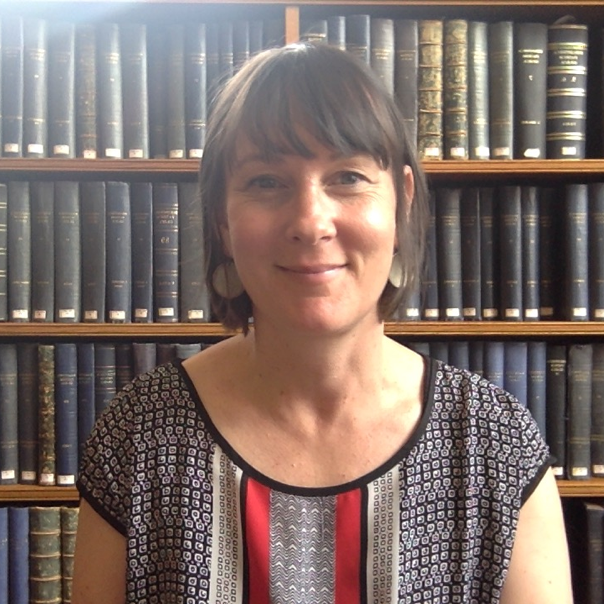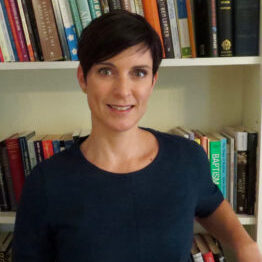Episode Transcript
[00:00:06] Speaker A: You're listening to by the well, a lectionary based podcast for preachers recorded on the land of the Wurundjeri people.
Hi, everyone. Great to be here with you today. I'm Kylie Kreb and today I'm really glad to be joined by our guest, Rachel Kromberger. Thanks for joining us, Rach.
[00:00:29] Speaker B: Thanks, Kylie. Hi, everyone.
[00:00:31] Speaker A: So today we're going to be speaking about the readings for the 20th Sunday after Pentecost, and we're going to particularly focus on Joel, chapter 2, verses 23 to 32, and on Luke, chapter 18, verses 9 to 14.
So let's get into it. Rachel, what if we're starting off with the Joel reading?
[00:00:52] Speaker C: Yeah.
[00:00:52] Speaker A: What stands out to you as we get into this reading together?
[00:00:57] Speaker B: Oh, the Joel reading is wonderful. Poetic, prophetic language. It's actually the only time in the lectionary we hear from Joel apart from Ash Wednesday.
So it's a rare moment. The year of the prophets promises, promises a glimpse of each of the prophets. And this is our moment with Joel.
It's really hard though, to read it without leaping into New Testament texts.
[00:01:20] Speaker C: Yes.
[00:01:20] Speaker B: So we're going to try really hard to stay with the moment in Joel today.
[00:01:25] Speaker A: Yeah, very good. It will be. People will read it and recognize it perhaps from Acts to the Pentecost story and whatnot. But yeah, we'll try and draw it back into. Into its Hebrew Bible context.
[00:01:37] Speaker C: Yes. Yeah.
[00:01:38] Speaker A: So, and what is that context? What do we, I mean, my understanding is we don't really know a lot about.
[00:01:43] Speaker B: Robert Alter says we know nothing about Joel, but others have tried to put him in at around 400 BCE after the rebuilding of the temple, after the exiles have returned from Babylon, and that his poetry and prophecy is directed to the community of the temple. So it's speaking internally in the community.
[00:02:07] Speaker C: Yeah, yeah.
[00:02:09] Speaker A: So we've had over this lectionary year, we've been looking at some other prophets. We've been dealing with Jeremiah. And so this is probably chronologically in order, sort of we're moving into sort of a post era exile kind of prophecy here.
[00:02:25] Speaker C: Yeah, yeah.
[00:02:26] Speaker A: Though there's not a lot of historical markering going on in the thing. We're just trying to work that out.
[00:02:31] Speaker B: Yeah, no, there's no sense like the other prophets of needing to be the historians as well as the prophets for their communities. This is just dealing with a particular crisis. And the crisis is that there's been a locust plague and the locusts have absolutely destroyed the crops. It's so severe that they. That Joel uses four different Hebrew words for locusts and no one really knows why. Yeah, it might be the different stages of development of the locust. You know, like they've laid their eggs and they're, you know, like there are carcasses of the old locusts lying around. Like it's a. Yeah.
Or it could just be about the comprehensive nature of the destruction. The English translators apparently find it very challenging to find four words to use in translating these four Hebrew words. Locust.
[00:03:21] Speaker C: Yeah.
[00:03:22] Speaker A: Oh, interesting idea about different. The possibility that it's different stages of. I feel like, you know, having dealt with like clothing, moths or something, I'm very familiar with all the stages of this infestation.
I don't mean to make a joke out of what was. Obviously what is describing a terrible pastoral in the sense of.
[00:03:43] Speaker C: Yeah.
[00:03:44] Speaker A: Devastation. But you can kind of imagine that kind of.
[00:03:47] Speaker C: Yeah.
[00:03:48] Speaker A: Understanding what's going on with the plague there. So we've got some full on language then in this text.
[00:03:55] Speaker B: Yeah, very intense. And the locusts he describes.
Early in the book of Joel we have the locusts, like devouring lions even. They've got that their teeth, you know, their teeth are a fixation for Joel that they gnaw away at things. There's this total destruction and then in this passage there's a.
For. For this week there's a idea of them as an army coming in. Representing an army.
[00:04:19] Speaker C: Yeah.
[00:04:20] Speaker A: So they're just coming in. They're cleaning the whole joint out.
[00:04:22] Speaker B: Yeah.
[00:04:22] Speaker A: And it's devastating. Yeah, it's terrible.
So we've got sort of two sides of the coin, would you say, like in this passage? Because we've got that and then we've got the promise of renewal.
[00:04:33] Speaker B: Yeah, that's right. So it's a, it's the, the opportunity to talk about. About the gifts of God that are coming and the restoration and renewal that is coming for the community.
So in some ways it's quite interesting that the, the locust plague is something that's happening in human history.
The promises feel more like they're on the edge of something beyond human history.
[00:05:00] Speaker C: Yeah.
[00:05:00] Speaker A: Well, there's the restoration. That is the restoration responding to the plague kind of thing. And then we're going to get the. And after this. And then some stuff that.
[00:05:10] Speaker C: Yeah.
[00:05:10] Speaker A: Feels, feels like it's pushing further on.
[00:05:12] Speaker B: Right.
[00:05:13] Speaker A: It's the stuff that the New Testament is going to pick up as eschatological.
[00:05:16] Speaker C: Yes.
[00:05:17] Speaker A: Whether it is already in Joel. Maybe, maybe it's the beginning of this. People sometimes wonder about. Joel is the beginning of these kind of apocalyptic sort of expectations.
[00:05:27] Speaker B: Yeah. Because we have, I mean, lots of people will recognize the language of the second half of this week's passage from the quote in Peter's sermon in second, the second book of second chapter of Acts.
[00:05:40] Speaker C: Yeah.
[00:05:41] Speaker B: But it's interesting because it, it describes something that's going on that day. Like Peter, you know, in, in Acts when they're looking for clues that these strange events are of God and they're looking for clues that there's, there's precedent or there's prophecy or there's, there are things which can alert them to, to, to this indeed being from God. All these strange events, they look back to this prophecy and you know, see, oh, the Spirit will pour out on all people. But, but in Acts they finished the quote about the sun and the moon growing dark and the sun, the stars refusing to shine. You know, that's that sense, that real apocalypse kind of imagery that's picked up in the Gospels when Jesus is predicting the end times a bit more. But in Acts that it sort of floats around without, without other reference.
[00:06:36] Speaker C: Yeah, yeah.
[00:06:37] Speaker A: So that's where people take Joel. We're going to stay in, in Joel for a bit. No, no, See, Distracted by Acts already. No, no, no, but it helps sometimes is what people who work in biblical reception will tell us. Sometimes when you look at the receptions of a biblical text, it, it helps you to notice something more in the text. So that's helpful for it to help us to go back to Joel and then notice what we notice, what we notice.
[00:07:00] Speaker C: Right. Yeah.
[00:07:00] Speaker A: So we've got, we've got the devastation and we've got this restoration. You know, I will repay you the years that the swarming locust has eaten. So you've got this, you've got this sense of that kind of restoration before we get to the kind of spirit filled stuff that comes later.
And I guess one of the things that might jump out to us, maybe like a health warning about how we read this is that part of what's going on is that the writer seems to be making sense of this natural disaster.
[00:07:33] Speaker C: Yeah.
[00:07:36] Speaker A: And, and does so by, by understanding it as a punishment of God.
[00:07:41] Speaker B: And this, we have this in common with, with a lot of like Jeremiah and some of the other prophets we've been reading this year as well, where the community's faced with a tragedy and they have to figure out is this something that God has allowed to happen or even cause to happen, or has God not been strong enough, powerful enough to prevent it from happening.
[00:08:06] Speaker A: Exactly.
[00:08:07] Speaker B: So Then you have to figure that out.
[00:08:09] Speaker C: Yep.
[00:08:09] Speaker B: And it's always the. The prophets fall on the side of the.
Of course God is powerful enough, so there must be a reason.
[00:08:18] Speaker A: Yeah, yeah, exactly. So it's. I think one of the things that's really helpful in this and important in Hebrew Bible theodicy that comes through like this is that it's a retrospective kind of making sense of things.
[00:08:30] Speaker C: Yeah.
[00:08:31] Speaker A: And the emphasis really is.
Falls on yes, there is the side that is about the judgment. But the, but the accent is on the restoration, the promise of change, that God is powerful enough to overturn these things and there'll be a new era of.
[00:08:47] Speaker C: Yeah.
[00:08:48] Speaker B: And this reason for hope, even hope, that is a seriously long game. That's a long, long way. A long way in the distance, even at the end of time. But there is this dogged insistence on hope.
[00:08:59] Speaker A: Yep, yep, exactly. So at the, at the same time as that, then we, we want to, we want to think very carefully about how we talk about it, remembering that people in our congregations are maybe going to come, people who, you know, walk off the street on our Sunday and join us might be expecting the church to be really judgmental about. About their lives and may come. I mean, we'll get to this with our actual New Testament reading in Luke 18, but may come with a real sense of their own brokenness, their own fallibility.
And to hear that, you know, bad things happen because you did the wrong thing may be exactly not where you want to start the conversation there.
[00:09:44] Speaker C: Yeah.
[00:09:45] Speaker A: So. So we've got this, this kind of tension about.
Because also come from this sense of bad things are not happening to me because I'm not a sinner.
Different passage in Luke Luke 13. That is more about that kind of theme. So what we're looking at here is this sense of how we can maturely engage with our need of repentance individually and as a society in a way that doesn't identify natural disasters as being caused by sin, but also looks for opportunities for repentance. Looks for opportunities for hope and renewal.
[00:10:29] Speaker B: Yeah, yeah, yeah, exactly.
[00:10:32] Speaker C: Yeah.
[00:10:32] Speaker B: And.
And to take seriously that this is something that there will always be things for which the Christian community needs to repent.
[00:10:42] Speaker C: Yep.
[00:10:44] Speaker B: And you know, here in Victoria, we've had the Yurok Commission, which called on all the churches to give account of their acceptance of stolen land for the building of their churches and the church's flourishing wealth with. Alongside the poverty of first nations people, there is always going to be things for which we need to repent together. And yeah, Separately. And to do that held in the hope of texts like this is really helpful.
[00:11:16] Speaker C: Yes.
[00:11:17] Speaker A: And to do it in the hope of the kind of repentance that also leads to new ways of walking in life that hopefully we don't do the things that the Europe Commission is having.
[00:11:28] Speaker B: To investigate again, that when we turn in the repenting. Yeah, we turn, we turn towards God and we turn to a new path. That's a better way forward.
[00:11:38] Speaker C: Yeah.
[00:11:38] Speaker B: I would also add that they may have people walking in off the street who are.
If you're listening to this from a rural farming community, please, please, please be sensitive to the circumstances of the farmers in your community.
They might recognize this as a lived experience.
They might, they might have other concerns in the face of climate change.
And being really clear that the afflictions on farming experiences, we, we do not understand them as divine judgment, but.
[00:12:23] Speaker A: No, but there might be, in fact, there might be some kinds of things that count as natural disasters that human action actually has had a hand in. And, and how we can together repent of that and change our ways is also an important part of the conversation.
[00:12:36] Speaker B: But please be sensitive if this is people's immediate lived experience.
[00:12:40] Speaker A: Yes, yeah, absolutely.
Just a quick shout out too to the wonderful description from Howard Wallace who's always like beautiful on, on these readings, who just gives a really authentic reflection. We can put something in the show notes, the link to his, his reflections for this, this lectionary week. But this, about that tension between, between repentance and, and change of life and, and, and he, he encapsulates to this, this sense of the bigger picture issues that in our political systems, in our political discourse where there is dishonesty and, and so you know that there is a role for calling to account and for all of us in repenting.
Beautifully set out that. To see how repentance and change of heart might actually be a necessary part of our movement towards hope for renewal in all of these different contexts.
[00:13:39] Speaker B: Yeah. And perhaps the church has a role in leading the wider community towards such repentance as well.
[00:13:45] Speaker C: Yeah.
[00:13:46] Speaker A: Beautiful. Okay, we're going to come back in just a second to discuss the Luke reading.
Okay. So Rachel, here we are in the Gospels. Now moving to the New Testament for our discussion, Luke 18. And a pretty familiar parable probably to people with a number of potential interpretive nightmares. Shall we, shall we call them? That is nightmare is the right word. I don't know. There's, you know, right from the beginning with the name, name of the parable as it's commonly Referred to as the parable of the Pharisee and the tax collector. Both terms we need to do some work on potentially.
[00:14:33] Speaker B: Yes, absolutely.
[00:14:34] Speaker A: Tell us about tax collector. What do you reckon?
[00:14:37] Speaker B: So, tax collector.
I think our go to description of a tax collector is someone who was left out, who, Jesus included, through no fault of their own or through only the fault of their circumstances.
But I think if we don't really lean into the problematic character of the tax collector, we miss a lot in this parable.
I was telling Kylie earlier a story about the Arch of Titus beside the Coliseum in Rome, which was built to celebrate the destruction of Jerusalem in the year 79. And it was paid for by the taxes collected from the Judean people.
So they suffered this terrible destruction and then the tax collectors collected their taxes and a festive archway was built in Rome to celebrate their destruction.
The tax collectors, the local people recruited by the Roman Empire to tax their own people and with freedom to add a surcharge. And probably their whole income from their work came from the surcharge. But that leaves them wide open to the possibilities of corruption. It does leave them isolated in their own communities.
But they're really tricky, complicated relationships that they're left with in their. In their community.
[00:16:15] Speaker A: Yeah, so. So this is like a kind of built environment thing in Rome that is like in the heart, in the heart of the Roman Empire when they've destroyed the temple in the year 70 and then they've taken the stuff and built something in Rome that they've also built something with the spoils of that.
[00:16:33] Speaker B: Yes, yeah.
[00:16:34] Speaker A: And then.
[00:16:37] Speaker C: Yeah.
[00:16:37] Speaker A: And then I think you were saying as well that some of the imagery.
[00:16:40] Speaker B: There is decorated with. With images of the temple being destroyed, the menorah being carried out, the scrolls being burnt. Like it's.
It's all depicted in. In the carvings on the.
[00:16:52] Speaker C: On the arch. Yeah, yeah, yeah.
[00:16:54] Speaker A: So. So part of what we.
I mean, I know that. I mean it's, you know, from people who've been in church their whole lives, will have gone to Sunday school and heard that the tax collectors are bad people and blah, blah, blah.
Know, we have lost potentially this. We've sort of sanitized it.
[00:17:09] Speaker C: Yeah.
[00:17:10] Speaker A: You know that it reminds me of stuff that a Hebrew Bible scholar, Daniel Smith, Christopher, said quite some time ago now actually, that I think about it, but he's talking about, in fact in. It was a US term and the coyote, but not, not a animal but a person, which is. In Australia we would call a people smuggler, somebody who is helping someone to cross an Immigration border.
But, but an unscrupulous person, a person who is making money out of someone else's desperation.
[00:17:47] Speaker B: Yeah, yeah, basically exploitative.
[00:17:48] Speaker A: Yeah, completely exploitative. And saying, you know, is there such a thing as a good people smuggler? So, so we're talking about, you know, people who are, who are seen in this kind of way is what we're talking about is, is what this parable is about.
[00:18:02] Speaker C: Yeah.
[00:18:03] Speaker A: And then Pharisee. Yeah, also a misunderstood category.
Tell us about Pharisees, Kylie. Well, we can, I'll put some stuff in the show notes about this because this is obviously a super sensitive, really important at all times, especially now that we're really clear about what we're talking about. When we talk about groups within our biblical text.
What we know about Pharisees is. Well, not as much as you would think we would know, but certainly that there's a group within Judaism. There are various other groups, Sadducees and so on, that Josephus tells us about a first century Jewish historian.
But these are not, you know, like all the stereotypes that you'll hear about Pharisees. You know, this kind of, what might you hear about stuff to do with being really litigious, just on about, like the going through the motions of this kind of legal practice and not really being faithful. None of that holds up in the sources that we have. I mean, even in the New Testament, actually, this is not what's really going on. This is a group that is maybe a bit more like Jesus's followers than some of the other groups. And so maybe this is where some of the conflict comes from. But obviously maybe it's not obvious.
These texts are written for people who are conversant with, with Jewish tradition. Luke is written in a style that is sort of like the way that the Greek Old Testament, the Septuagint is written. You understand new depths to Luke when you can read, you know, the, the infancy narratives, the stories of Jesus's birth and so on. In light of the stories of other women who were struggling to conceive in the Hebrew Bible. Elizabeth and Mary makes it, you know, there's all of these layers that show that Luke himself was very aware of these traditions and probably presumes that his readers were as well.
So this isn't, this is a conflict within Judaism. It's not something that is about that other group over there. As soon as you start reading it like that.
[00:20:02] Speaker B: Within the family.
[00:20:03] Speaker A: Within the family, exactly.
So what probably, you know, a bit of translation or a bit of interpretation that says something like the Religious leaders of the time. Yeah, it's. That's. That's the kind of thing we're talking about here. So it's a religious leader, it's a pious person. It's someone you would expect to be living faithfully.
[00:20:22] Speaker C: Yeah. Really?
[00:20:23] Speaker A: It's not. It's not a hated person. It's someone you'd expect to be living faithful.
[00:20:26] Speaker B: Living faithfully. And also confident of their place in the community of faith.
[00:20:31] Speaker C: Yeah.
[00:20:31] Speaker B: Confident that they are. That they belong, that they're welcome, and confident that they know enough about the faith to know that.
That when they test themselves against their own criteria for faithfulness, they feel relieved that. And. And thankful that they've met the criteria.
[00:20:54] Speaker C: Yep.
[00:20:55] Speaker B: And. And feel satisfied that they've been faithful.
[00:20:57] Speaker C: Yeah, yep, exactly.
[00:20:59] Speaker A: So we get this thing which we get often across. Luke and Brendan Burns. Beautiful commentary.
Very accessible commentary. The hospitality of God introduces this idea, the idea of Lucan triangles. And we get them often where there are a couple of. There are a couple of people who are interacting with Jesus or, you know, in some way, creating the triangle.
So we might get even. In other parables, like the story of the prodigal son, the focus has traditionally been on the son, the youngest son, but in fact, there's a triangle with the father, the elder son and the younger son. And in fact, when you pay attention to that triangle, you start noticing that while it's a very real challenge to the younger son who returns, there's this real barb for the elder son about what. What. How he's going to respond. And the story ends before we get to it. And again, we have the same kind of thing here with. With this parable where it's a very real encounter with God in the temple. For each of these characters, or potential encounter with God, the tax collector is really at his lowest ebb. Here is the sense we get.
[00:22:12] Speaker C: Yeah.
[00:22:13] Speaker A: He knows his need. And so it's not that. That isn't a really important part of the triangle. It is. But there is this other side with this strong barb for the characters who think that they have it together.
[00:22:26] Speaker B: Yeah, there's no room for smugness here.
[00:22:28] Speaker C: Yeah, yeah, yeah, yeah.
[00:22:30] Speaker A: Exactly, exactly. And in fact, we get, you know, to illustrate also with another triangle that the. In Luke 7, where we've got Simon the Pharisee is hosting a meal and the woman who's only described as a sinner, who comes and anoints Jesus's feet, this creates another triangle.
And you might remember this story in that. That Jesus tells about the amount of Money that's been forgiven and who's going to be most grateful.
But of course, part of this, part of the point there is that both of the amounts of forgiven debt are really significant.
[00:23:03] Speaker B: Yes.
[00:23:04] Speaker A: So in a sort of similar way here in this parable, we get the sense that both of these characters are deeply dependent upon God, but they're not both engaging with that in the same sort of way.
[00:23:17] Speaker C: Yeah.
[00:23:18] Speaker A: So tell us. There's.
I know that Raj. We were talking about something from Amy Jill Levine that might illuminate something here, or it might be just an interesting thing to wonder about with this text.
[00:23:30] Speaker B: So Amy Jill Levine's Annotated New Testament is an NRSV New Testament volume and highly recommended.
But one of her goals is to disrupt and challenge some of the texts which have been read in a way that might be anti Semitic, and they're really, really helpful annotations for this text.
She has a fascinating proposal, which is that in the verse 14, Luke says, or Jesus says to the disciples, I tell you that this man went down to his home, justified, that is the tax collector rather than the Pharisee. And she says it's curious that that word, which in Greek is para, para, is translated here as rather. She says it's not translated as rather anywhere else in the Gospels. Everywhere else it means besides or alongside.
So what if we read, I tell you that this man went down to his home justified alongside the Pharisee instead? How would that change our reading of the parable? How would it disrupt our prejudices, disrupt our assumptions?
What might it mean? And so there's lots of really interesting implications for this.
One is that the Pharisee who stands alone in the beginning finds himself with company at the end. And the tax collector who weep's alone finds himself in community as well. So part of the restoration of the two of them from their time in the temple is the finding of community.
[00:25:18] Speaker A: It's interesting. I mean, obviously there's a bit in this story that is.
That. That is working on that, you know, like the end of the.
The end of this passage for everyone who exalts himself will be humbled, and the one who humbles himself will be exalted. Is. It's sort of playing on an idea of reversal.
[00:25:36] Speaker C: Right.
[00:25:37] Speaker A: But it is also worth teasing out a little bit more, I guess, and wondering if I should say the Greek word.
Yes. Most often it's a preposition. They can mean so many different things in different contexts, as people will know from other languages. And it does most often mean from the side of or something like that. When it's in this kind of context, it can also mean a comparison. So rather than less commonly, it can mean that. So it could be that. But. But Amy Dullivan is drawing our attention to something really important. And it. Note, it makes me notice that you can have a reversal without it being that kind. Without it just being these two people swapping their. Swapping places with one another. Right. So, in fact, what we've got at the beginning of the parable is the religious leader who is exalting himself, and we've got this character who we shouldn't just sort of idealize, who's actually really much disliked because they are exploiting other people potentially economically and, you know, in whatever ways.
So, in fact, walking with him is to be humbled.
[00:26:44] Speaker B: Yes.
[00:26:45] Speaker A: So. So there is a kind of, you know, like, combination together there that might be, you know, moving, humbling, and then traveling together. That might be part of humbling.
[00:26:55] Speaker B: And if you go back to the triangle with the prodigal, so and his brother, if you picture, like, the next. The next chapter in their lives, should there be a restoration of the relationship between the two brothers? This is what it would look like.
[00:27:08] Speaker C: Yeah, yeah, yeah.
[00:27:08] Speaker B: One would be humbled and one would be exalted by the grace of that moment.
[00:27:15] Speaker C: Yeah.
[00:27:15] Speaker B: So.
[00:27:16] Speaker A: But. But it would also. But potentially it's like a humbling together that then leads to.
[00:27:21] Speaker B: Yes.
[00:27:21] Speaker A: Joint sort of restoration really is the. Is the end goal of. Of that.
[00:27:26] Speaker C: Yeah.
[00:27:27] Speaker A: Another way that I've thought sometimes about these angles is to think of them as.
It's sort of insiders and outsiders. So who are the characters? Who are the. The insider character who should understand we might think about this in our own lives? Who are the insiders in our church communities?
We. We are. If we're. If we're listening to this in order to prepare worship, probably we are amongst the insiders.
And. And what does that. What does that mean? What kind of challenge does that bring to us? And in fact, I have done some studies on this with different parish groups. And one of the things that's interesting is people start getting confused, understandably, about who the insider and the outsider really are. Because by the time you've switched roles, insider to be outside, are you, like, are we talking about at the end of the story, who's the insider and who's on the outer.
[00:28:12] Speaker B: And after 2000 years of considering the tax collectors to be the goodie in this story, to be, you know. Yeah, it. It's really hard to read.
[00:28:20] Speaker A: It's Hard to read.
[00:28:21] Speaker C: Yeah.
[00:28:22] Speaker A: But the. The other kind of underlying thing, I guess, is that the. That if we're thinking about how we might preach on it or what we're wondering about, you know, that in all of these stories where there's a really challenging triangle in Luke, where there is an offer of grace to an outsider and a challenge to an insider, it's not a reversal anywhere. I don't think in Luke's text that is actually about excluding someone. What, the characters exclude themselves.
[00:28:51] Speaker B: Yeah.
[00:28:51] Speaker A: So the invitation, the gracious invitation is to all equally.
And then it's about the challenge that sometimes the insider characters find it more difficult. There's more layers of stuff to get through before they're ready to accept the invitation. Much like the parable in Luke 14 about the banquet.
[00:29:10] Speaker B: Yes. Yes, precisely.
[00:29:12] Speaker C: Yeah.
[00:29:13] Speaker A: Beautiful.
Any last things to comment on in this, Rachel?
[00:29:19] Speaker B: I think if you've. If you're preaching as a pastor, so if you have a known community, people who you also are caring for individually, you'll know that among your people, there will be people praying the prayer of the Pharisee in private, and there'll be people praying the prayer of the tax collector in private.
So I would really encourage you to consider the pastoral dimension of this text and think about what is the word of life, the word of hope, the good news of Jesus Christ for each of those people in this text, and how might they be drawn each be drawn into the grace of God more deeply through your preaching this week.
[00:30:08] Speaker A: Beautiful. And how we think about not exacerbating the sense of.
It's not about self hatred by glorifying the prayer of the person who identifies as a sinner.
[00:30:22] Speaker C: Yeah.
[00:30:26] Speaker A: There's something really moving about thinking about how we engage with people like people who are all in different places with this stuff within the same worship service is a challenge, but also a beautiful thing.
[00:30:39] Speaker B: Yes, indeed.
[00:30:41] Speaker C: Yeah.
[00:30:42] Speaker A: So lovely to speak with you, Rachel. Thank you so much.
[00:30:44] Speaker B: And with you, Kylie, and with all of you out there listening.
[00:30:46] Speaker C: Yeah.
[00:30:47] Speaker A: Have a wonderful week, everyone. Thank you.
By the well is brought to you by Pilgrim Theological College and the Uniting Church in Australia. It's produced by Adrian Jackson. Thanks for listening.





